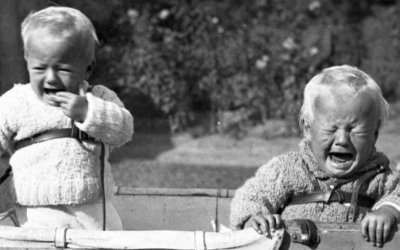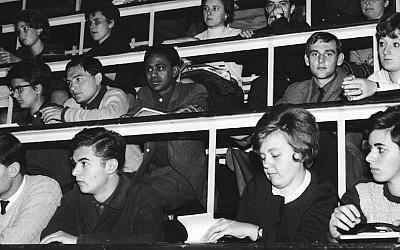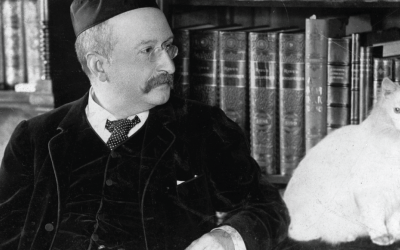On the fiftieth anniversary of Gettier’s famous paper, Fred Dretske explains what we should have learned from it.
This is the golden – the fiftieth – anniversary of Edmund Gettier’s remarkable paper on why knowledge isn’t justified true belief. It seems like an appropriate time, therefore, to evaluate what we have learned – or should have learned – from his elegant counterexamples.
Gettier’s paper had a tremendous impact on contemporary epistemology. Measured in terms of impact per page his three-page paper (yes, only three pages) rates among the most influential of twentieth-century essays in philosophy. Prior to Gettier it was more or less assumed (without explicit defence) that knowledge, knowing that some proposition P was true (when it was in fact true), was to be distinguished from mere belief (opinion) that it was true, by one’s justification, evidence, or reasons for believing it true. I could believe – truly believe – that my horse would win the third race without knowing it would win. To know it would win I need more – some reason, evidence or justification (the race is fixed?) that would promote my true belief to the status of knowledge. Gettier produced examples to show that this simple equation of knowledge (K) with justified true belief (JTB) was too simplistic. His examples triggered a widespread search for a more satisfactory account of knowledge.HH Gettier’s counterexamples are constructed on the basis of two assumptions about justification, both of which were (at the time he made them) entirely uncontentious. The first of these was that:
1: The justification one needs to know that P is true is a justification one can have for a false proposition.
Almost all philosophers who aren’t sceptics accept 1 without hesitation. After all, if one can, as we all believe we can – sometimes at least – come to know (just by looking) that there are bananas in the fruit bowl and (by glancing at the fuel gauge) fuel in the automobile tank, then given the existence of wax bananas and defective gauges, the justification, the kind of evidence, needed to know is clearly less than conclusive. It is something one can have for a false proposition.
Nonetheless, despite the overwhelming appeal of 1, accepting it lands one in the epistemological soup. Well, almost in the soup. The added push is supplied by Gettier’s second assumption:
2: If you are justified in believing P, and you know that P entails Q and accept Q as a result, you are justified in believing Q.
The idea behind 2, of course, is that one does not lose justification by performing deductive inferences one knows to be valid. If you have reasons to believe P is true, and you know P can’t be true unless Q is true, then you have equally good reasons to believe Q is true. It is difficult to see how 2 could be false if logic is to be regarded as a useful tool for expanding one’s corpus of rationally held beliefs.
But, alas, accepting both 1 and 2 lands you in deep trouble. Gettier explains why. Suppose you are justified (to a degree needed for knowledge) in believing a false proposition F – that, say, Tom lives in San Francisco. Letters, telephone calls, and a recent visit have convinced you of this. If asked, you would say you know where he lives. Nonetheless, despite your justification, F is false. He lives in Los Angeles. Gettier 1 tells us this can happen. Realising that if Tom lives in San Francisco he must live in California you, quite naturally, also believe he lives in California. You now (via 2) have a justified true belief in the proposition that he lives in California. Yet, because your belief in this proposition is reached by such defective means (via the false belief that he lives in San Francisco), you don’t know he lives in California. So knowledge is not justified true belief. K ≠ JTB. It is something more. Or something different.
What, you may ask, is so troublesome about that? Isn’t this exactly what Gettier was trying to show? Isn’t this what kept philosophers busy for years trying to patch up the JTB analysis of knowledge so as to make it immune to this style of counterexample? What about amending the analysis to exclude the possibility of reaching one’s true belief in P by such defective means – via, in particular, false propositions that entail P? Knowledge is not JTB. It is JGTB where JG (“G” for Gettierproof) is some suitably amended version of J, a form of justification that is immune to Gettier style counterexamples. This is not “trouble” at all. It is certainly not deep trouble. On the contrary, it represents philosophical progress. Thanks to Gettier we now have a better picture of what knowledge really is. Or isn’t.HH This is a response to Gettier that seeks to solve the problem by accepting the two assumptions that led to it. But it doesn’t work. You can’t avoid the problem and still accept both 1 and 2. Something has to give. To see why consider some hypothetical improvement on the standard JTB analysis. Knowledge isn’t JTB, it is JGTB, where JG is designed to avoid Gettier counterexamples while satisfying both 1 and 2. JG might, for instance, specify that one’s justification for P must not depend in any essential way (as Gettier counterexamples do) on belief in any false proposition. This amendment automatically rules out as knowledge your belief that Tom lives in California, since it is reached via the false proposition that he lives in San Francisco. You may be justified (in some ordinary sense) in believing he lives in California, yes, but you are not justifiedG in believing it. So you don’t know it because knowledge now requires JG justification and that is something you do not have. Problem solved. Knowledge is not JTB. It is JGTB.
The problem is not solved. Remember, the Gettierproof justification, JG, in K = JGTB was supposed to satisfy both of Gettier’s opening assumptions. JustificationG may satisfy 1 (you can be justifiedG in believing Tom lives in San Francisco even though this is false), but it fails to satisfy 2. Why? Because even though your belief that Tom lives in California is a result of a justifiedG belief that he lives in San Francisco, you are not justifiedG in believing he lives in California. So contrary to 2, justificationG, the kind of justification needed for knowledge, does not exist for propositions (Tom lives in California) you know to be implied by things (he lives in San Francisco) you are justifiedG in believing. So JG does not satisfy 2.
As far as I can see, this result is perfectly general. If assumption 1 is true, if you can have a justification, JG, the kind of justification needed for knowledge, for a false proposition, F, then 2 is false: this justification will not give you JG for the true propositions known to be implied by F. One will not be justifiedG in believing propositions one knows to be implied by what one is justifiedG in believing.
This is the epistemological soup, the “deep trouble” I spoke of earlier. What to do about it? I suggest that the only reasonable option is to reject 1. One is not justified – not in the way needed for knowledge – in believing false propositions. If one is justified in the way needed to know P, then P has to be true. If your reasons for believing P are such that you can be wrong about P, you don’t know that P. As I once put it, JG justification is conclusive. You can’t have it for a false proposition. That is what gives JG justification the power to transform mere belief that P into knowledge that P. It provides – as knowledge is supposed to provide – security from error. That is why we all hanker after knowledge.HH This sounds like pretty strong medicine. Is it too strong to swallow? Is the cure worse than the disease? Isn’t rejection of 1 simply the first step on the way to scepticism, since we seldom if ever have conclusive reasons to believe the things we take ourselves to know? Isn’t there room to manoeuvre here? What about rejecting 2?
I’ll come back to these questions in a moment, but for now let’s look at some of the other reasons for targeting 1 as the bad apple in this epistemological barrel.HH Lottery examples suggest that you cannot know that P is true if there is a chance, however small, that P is false. If your only reason for thinking you are going to lose in the lottery is that you have only one of the million tickets sold, then it may be perfectly reasonable for you to be pessimistic, to believe you are going to lose, but you do not know you are going to lose. Why? Because, given merely those reasons, the fact that (given the number of tickets sold) your chances of losing are .999999, you nonetheless still might win. It is possible. Someone with exactly this small chance (.000001) of winning will win and – who knows? – it might be you. So if, given your overwhelming reasons for believing it, P might be false, you don’t know it is true. That, of course, is just another way of saying that to know something you need conclusive reasons to believe it, the kind of reasons you can’t have for P if it is false.
The Conjunction Principle says that if you know P and know Q, then you know P and Q. At least your evidence is good enough to know P and Q even if you don’t happen to put two and two together and entertain the two propositions together in your mind. This sounds like an eminently reasonable principle, one that a theory of knowledge should preserve. Nonetheless, if we suppose that one could know that P is true when P might (given your evidence) be false – whenever the probability of P was, say, at least .99 – then the Conjunction Principle would turn out false. Why? Because one might know P (P is .99 probable), know Q (also .99 probable) and not know P and Q since the probability of the conjunction P and Q = [(the probability of P) x (the probability of Q)] and this will generally be less than .99. It will always be less than the probability of the conjuncts when these conjuncts describe independent conditions. The only way to avoid this result and, thus, preserve the Conjunction Principle is to insist that the evidence or justification needed for knowing something must make the probability of it equal to 1. Not close to 1, not nearly 1, but 1. The justification must be conclusive since otherwise conjunctions will fail to meet the justificational standards of their conjuncts, and the Conjunction Principle will fail.
The third consideration is a bit more tricky, but it carried significant weight with me when I first thought about it.HH Why can’t one have a reason to believe false something one knows to be true? One can, after all, have reasons to believe false things one has reasons, even very good reasons, for believing true. One’s reasons for believing it true are just much better than the reasons for thinking it false. But, to repeat, it doesn’t seem as though one can have reasons to believe P false if one knows it is true.
Think about Sue, Sam and the cookie jar. Sue knows there are cookies in the jar. She just looked. Sam does not know this. He did not look. They both watch a hungry boy peer into the cookie jar, replace the lid without taking anything, and leave with a disappointed look on his face. Sam, we may suppose, has now acquired a reason to think there are no cookies in the jar. Sue has not. Sue knows there are cookies in the jar. For her the child’s behaviour is not (as it is for Sam) a reason to think that the jar empty. It is, rather, a puzzling fact to be explained. Why didn’t he take a cookie? Doesn’t he like peanut butter cookies? If Sue, despite an earlier peek into the jar, now takes the child’s behaviour as a reason to think that there are no cookies in the jar, then – poof! – her knowledge that there are cookies there vanishes. It vanishes because Sue is now taking the absence of cookies as a possible explanation of the child’s behaviour, and this is something she cannot do if she knows that explanation is false. You can do that if you merely have good – maybe even excellent – reasons to think the jar has cookies in it, but you cannot do that if you know it has cookies in it. The explanation for this curious fact is that the reasons required for knowing the jar has cookies in it eliminates an empty jar as a possible explanation of anything, and the only reasons that do that are conclusive reasons. Very good reasons, reasons that leave open the possibility of cookies in the jar, reasons that satisfy Gettier 1, won’t do the trick. So, once again, Gettier 1 has to go.
Resistance to this conclusion might come from a misunderstanding of what is required for a “conclusive” justification, a justification that one cannot have for a false proposition. If one thinks of a conclusive justification, a justification one cannot have for a false proposition, as something like a logical proof, then, of course, this conclusion will sound absurd. It would be a way of saying that to know that P one must be able to prove that it is true. Sceptics may believe that, but no one else does. But that isn’t what is meant. That would set the standard for knowledge much too high. All that is meant – or, better, all that needs to be meant – is that the reason why one believes P (this is called an explanatory reason) is some existing condition R such that the following statement (CR) defining a conclusive reason is true.
CR: R would not be the case unless P was true.HH If CR is true (you don’t have to know it is true), then R, the reason why you believe P is a conclusive reason for believing P (this is called a justifying reason). If you have conclusive reasons for believing P, you cannot be wrong about P. But this is not because R is a proof that P is true. It is because R – perhaps unknown to the person for whom R is his reason for believing P – satisfies a condition (viz., CR), that it cannot satisfy for a false P. As it turns out, therefore, conclusive reasons are not that hard to come by. We have them for many of our ordinary beliefs.HH If the reason a person has for believing there is gas in his automobile tank is that his gas gauge indicates there is, then if the gauge is functioning properly, he has conclusive reasons for thinking he has gas in his tank. I assume here that a “properly functioning” fuel gauge is one that wouldn’t indicate there was gas in the tank unless there was gas in the tank. This, too, is the sort of justification a person might have for thinking that my birthday is in December – viz., I told him it was. If I am a truthful sort of guy, the sort of person who wouldn’t have said my birthday was in December if it wasn’t, then my saying my birthday is in December is a conclusive reason for believing it is.
Conclusive reasons, then, are reasons you can’t have for a false P. They don’t satisfy Gettier 1. If these are the kind of reasons one needs for knowledge, then – voila! – Gettier’s counterexamples are rendered ineffective. You can – via Gettier 2 – come to a justified true belief that Tom lives in California by way of a false belief that he lives in San Francisco, but because your reasons for believing he lives in San Francisco are not conclusive, they won’t (or needn’t) be conclusive for thinking he lives in California either. So your belief that he is in California won’t qualify as knowledge despite it’s being a justified true belief that he lives in California.HH I have so far ignored the question of whether Gettier’s second assumption should be accepted. I have only argued that if it is accepted, one must reject Gettier 1. But what if one doesn’t accept 2. Don’t we have some wiggle room here?
For many philosophers this will be an academic question. There is no wiggle room. For these philosophers rejecting 2 brings on epistemological Armageddon. I have myself rejected principles (they are called closure principles) like 2. I believe there are things people don’t know (and sometimes have no way of knowing) that they know are implied by things they know. But this is a controversial issue that we can comfortably set aside here. Even philosophers like myself who reject closure principles are willing to accept them when they are restricted to the kind of obvious implications at work in familiar Gettier examples – implications such as that [P] implies [P or Q] or that [Tom did it] implies [Someone did it]. Controversy about closure arises with implications such as: [There are cookies in the cookie jar] implies [Idealism is false]. Since cookies are genuine physical objects, not ideas in the minds of conscious beings, anyone who thought himself able to see that there were cookies in a cookie jar would think himself able (with the help of closure) to refute Bishop Berkeley’s idealism by looking into cookie jars. I don’t think it is that easy to refute Berkeley’s philosophy. It isn’t that easy because that use of closure is illicit. Closure is not a generally valid principle. You can’t always use it to come to know what you know is implied by what you know. But its use in typical Gettier examples seems quite unobjectionable.
I conclude, therefore, that Gettier 1 is the troublemaker. The kind of justification one needs to know is not the kind one can have for a false proposition. That, I submit, is what we should have learned from Gettier.
FRED DRETSKE IS SENIOR RESEARCH SCHOLAR IN PHILOSOPHY AT DUKE UNIVERSITY AND AUTHOR OF KNOWLEDGE AND THE FLOW OF INFORMATION, EXPLAINING BEHAVIOR, AND NATURALIZING THE MIND.
{fastsocialshare}






